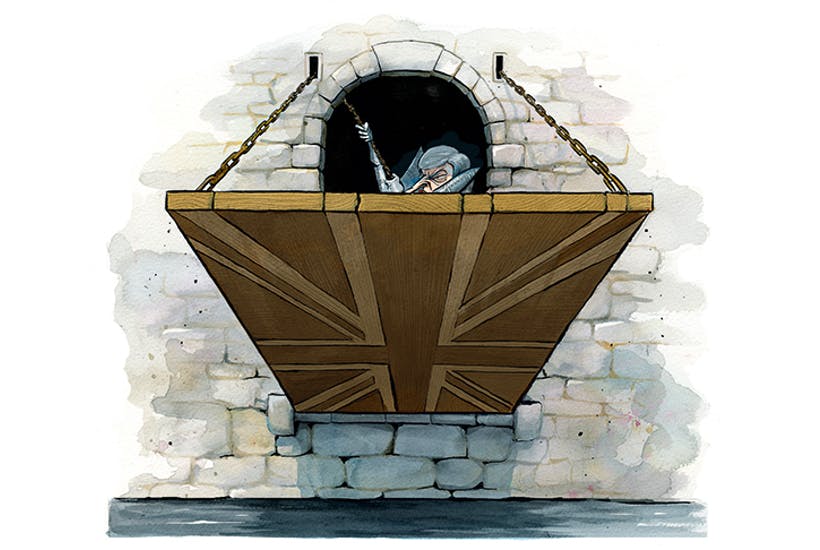This week we ask why Theresa May is pulling up the drawbridge to Britain, exactly when she should be advertising Britain’s openness in a post-Brexit world? We also discuss why charities are working to shut down schools in Africa, and hear from Quentin Letts on his experience of being pursued by the Establishment.
As Commonwealth leaders meet in London this week, Theresa May has been under fire for her government’s treatment of the Windrush generation. The government initially refused a meeting requested by Commonwealth leaders to discuss the issue, only to U-turn on it hours later. Fraser Nelson argues in this week’s cover that this royal screw-up is symptomatic of Theresa May’s wrong approach to Brexit – instead of pulling up the drawbridge, now is the exact time she should be advertising Britain’s openness. Fraser is joined by Joey Jones, Theresa May’s spokesman when she was Home Secretary. On the concurrence of the Windrush row and the Commonwealth Summit, Fraser tells us:
‘It’s a disastrous look for the Conservatives, for the government. But what I argue in my cover piece is that it’s a bit more than that. It’s a bad look for Britain as a whole. Right now, after Brexit, a whole lot of people are wondering, what has just happened? Has the country turned in on itself? Is it a nativist coup d’etat? Is it really the global Britain looking out to make new friends and lifting our sights to more distant horizons?’
Aidan Hartley and James Tooley have been on the trail of Bridge International Academies, an organisation providing private education to children across the developing world. Their fee-paying schools have over 100,000 students in five countries, and deliver higher academic results than local government schools. But numerous organisations are campaigning against them, ranging from Amnesty International, to Oxfam, to the Ugandan government. We hear from James Tooley, Professor of Education Policy at Newcastle University, and Sylvain Aubry, Legal and Research Advisor for Global Initiative, one of the charities leading the campaign against Bridge private schools. James tells us:
‘There’s a campaign to shut them down, for various nefarious reasons. Really, we can see the reasons in ideology. People don’t really want the private sector to be meeting the educational needs of the poor. Somehow people find this offensive. It offends 70 years of the consensus about what development should be. But the poor don’t think that way – they want these schools.’
But Sylvain disagrees passionately:
‘You were talking about ideology earlier James, and what’s really regrettable in this discussion is that a lot of the arguments made are ideological. So you made lots of points James, but none of them are based in fact.’
To find out more about Sylvain’s counters, listen above.
Last, theatre critic Quentin Letts recently found himself angrily pursued by the arts Establishment. In a theatre review written for the Daily Mail, Quentin questioned the casting of an actor – arguing that Mr Leo Wringer was ‘too laid-back, too chic’, to be cast as a country squire in the Royal Shakespeare Company production. In response, a veritable throng of thespians and even the Company itself, accused him of racism, as Leo Wringer is black. He writes about this experience in this week’s diary. On being labelled as such, Quentin tells us:
‘I simply can’t understand why the Royal Shakespeare Company pushed it so hard. I think they damaged their case like that. It’s like saying, anybody who questions all-female shortlists for parliamentary seats is some foaming sexist. Well that’s just simply not the case.’
To subscribe to this podcast and many more, visit the iTunes store.








Comments